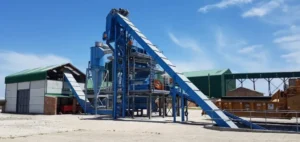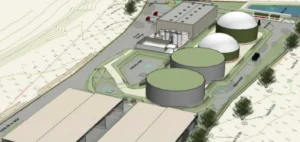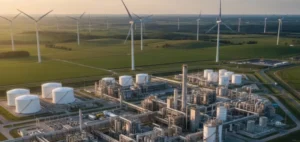EDF, via its subsidiary EDF Production Energie Insulaire (PEI), has taken an important step in the renewable energy sector. The newly inaugurated bioenergy plant at Port-Est on Reunion Island represents a first in the conversion of a plant of this scale. The plant’s twelve engines, which previously ran on oil, now run on liquid biomass, made from rapeseed oil. This conversion, the result of two years of technical preparation and six months of construction work, will enable EDF to produce entirely renewable electricity on the island.
Impacts and Technical Challenges of Conversion
This ambitious project covers an average of 40% of the island’s electricity needs. EDF met the challenge of maintaining electricity production during the conversion work, a remarkable technical achievement. This operation required rigorous planning, including maintenance, successive shutdowns during the work and essential modifications to the plant’s central control and instrumentation system in order to use the new fuel.
Environmental benefits of Liquid Biomass
Liquid biomass, derived from rapeseed oil, produces 100% green electricity and avoids the emission of 500,000 tonnes of CO2 per year. The use of this biofuel will considerably improve air quality, by eliminating sulphur emissions and reducing dust emissions, while at the same time ensuring electricity production by the plant (212 MW). The liquid biomass used is certified under the European RED (renewable emissions directive), which has been transposed into French law and defines sustainability criteria and environmental requirements for the sector.
EDF and the Energy Transition Ambition on Reunion Island
Luc Rémont, Chairman and CEO of EDF, expressed his satisfaction with the successful conversion of the Port-Est power plant. This project secures an important source of renewable energy for Réunion’s electricity mix, and supports the region’s energy transition ambitions. EDF’s power generation fleet on Reunion Island is now 100% renewable, in line with the overall objective of making non-interconnected regions a benchmark for renewable energy.
The inauguration of EDF’s Port-Est bioenergy plant is a significant milestone in the history of Réunion’s energy transition. It illustrates how technological innovation and commitment to renewable energies can transform a region’s energy landscape in a sustainable way.






















